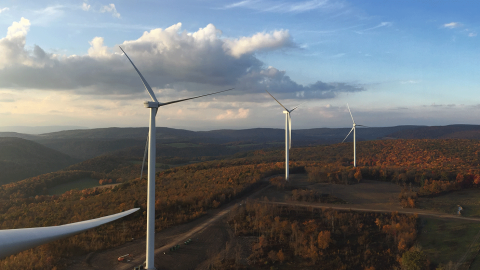Founder of ResponsibleRisk, Richard Peers, moderated a session at Sustainable Finance Live titled ‘What is the role of impact and ESG data in ensuring economic profit of nature capital in the marketplace?’ The panel featured speakers Cain Blythe, founder of Ecosulis and Credit Nature; Simon Crichton, head of nature, food, and resource at Triodos Bank; Giles D’Souza, strategic business lead in remote sensing and GIS at Planet; James Lockhart-Smith, VP sustainable finance at Verisk Maplecroft; and Donna Lyndsay, strategic market lead for environment and sustainability at Ordnance Survey.
The discussion explored the transaction journey of natural value, examining how nature is priced, quantified, and traded, and highlighted the connection between ESG and impact investing and financial returns. Crichton emphasized that Triodos Bank has focused on nature financing since its inception and highlighted the importance of addressing gaps in data and government policy. He noted, “It’s not just about carbon, biodiversity, or gains in nature; it’s about community and social impact,” while recognizing the need to also ensure repayment for investments made.
D’Souza illustrated the potential of satellite data for nature collection, pointing out that effective measurement requires collaboration between satellite monitoring and ground data. He stated, “Satellite data is great because it’s homogeneous, covering the entire globe routinely every day. However, we need to correlate that with on-the-ground measurements.”
He also discussed the role of AI in analyzing ecosystems, noting how it helps organize data to identify changes over time. He explained that insurance data is increasingly integrated into environmental monitoring, allowing for the assessment of risks surrounding specific projects.
Lyndsay shared how Ordnance Survey addresses geospatial challenges in both public and private sectors, collaborating with entities like Planet and Deloitte to trace global supply chains. She mentioned a project with Unilever to track the soy supply chain, utilizing data and AI to pinpoint sourcing and processing locations accurately.
Lockhart-Smith highlighted the importance of geo-spatial data in assessing risk for assets and corporations, explaining that Verisk Maplecroft collects information on political and human rights issues to evaluate sustainability profiles. He acknowledged the challenge of creating scalable, decision-ready data that encompasses multiple risks and assets.
From a nature-positive perspective, Lockhart-Smith brought attention to various environmental issues impacting nature’s value, such as deforestation and pollution. He stressed the necessity for community engagement and support in nature restoration efforts.
Blythe underscored the significance of involving all stakeholders in restoration processes through a socio-ecological model at Credit Nature, ensuring everyone’s voice is heard. He concluded by affirming the growing capability to invest in nature, referencing the Wildlife Trust’s long history of restoration efforts. He pointed out that while initiatives are emerging, a structured market infrastructure and independent metrics are crucial for scaling these investments effectively.
